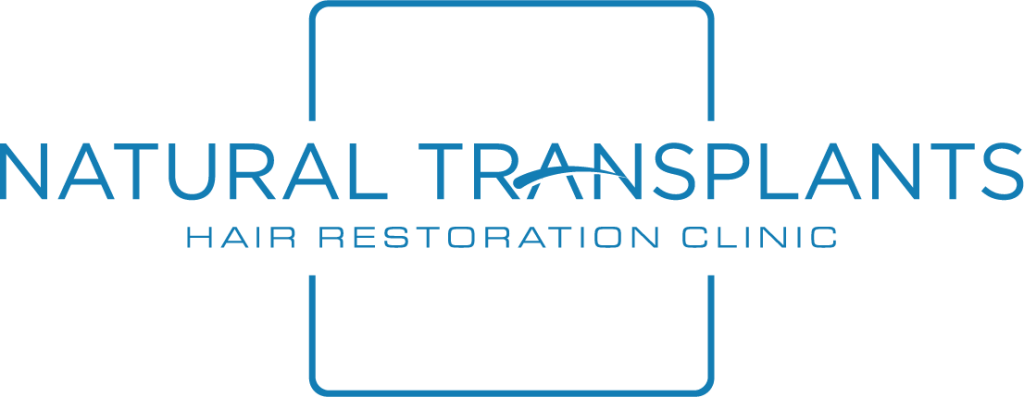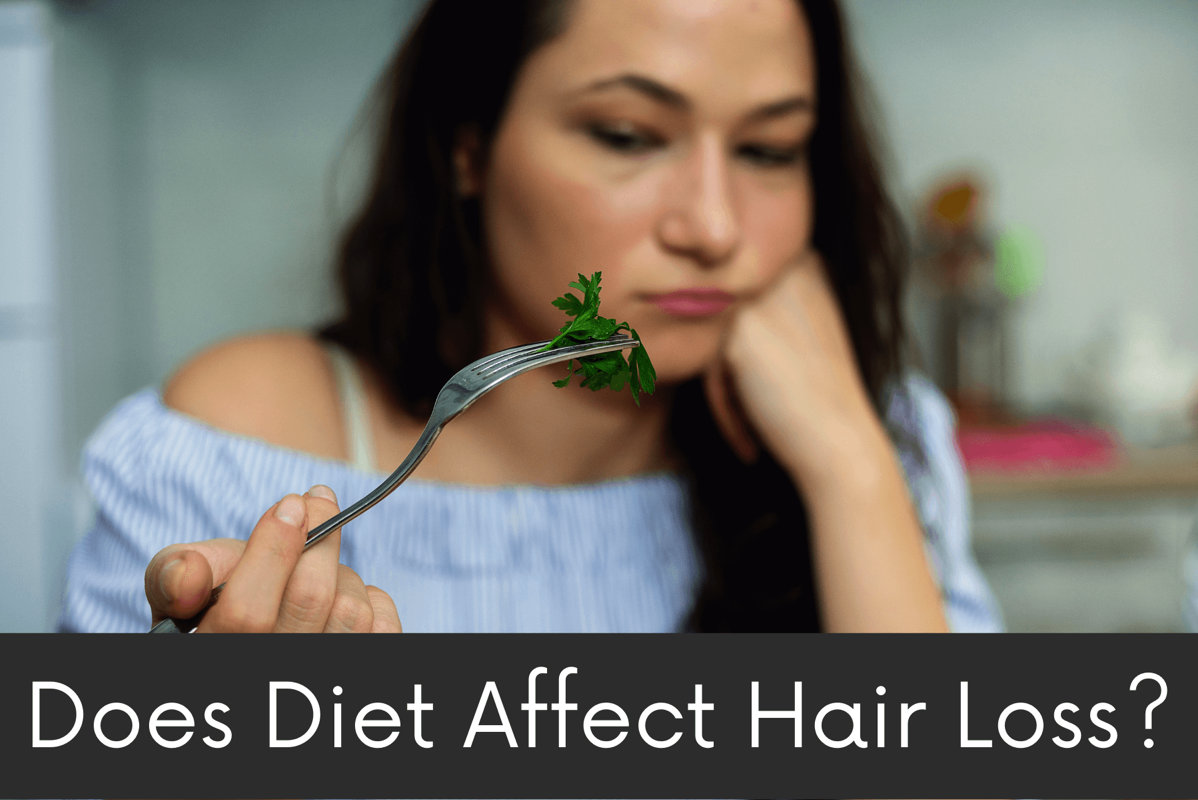The short answer is: yes, diet and hair are interrelated. While other factors like genetics, chronic illness, and others play a part in hair growth, diet is a major contributing factor.
The good news is that if you improve one, the other will likely follow suit because the two are related. Be careful, though, because any change to your diet can lead to hair loss, even if the diet changes are only temporary. Take weight loss, for example. People who lose significant weight tend to report hair loss or hair thinning, especially women.
Remember to try your best to fuel your body with a healthy diet full of vitamins and nutrients to help it perform optimally.
How Does Malnutrition Affect Hair Loss?
Malnutrition plays a huge role in hair loss. When your body is malnourished, it’s forced to take nutrients away from other parts of the body, like bone density and hair, to fuel itself. Those dealing with eating disorders like anorexia nervosa can experience significant hair loss as part of the illness.
Usually, hair loss from malnutrition starts around the hairline and roots of the hair that holds the most tension when styled. The likelihood of the hair growing back and how long it will take can depend on the severity of the malnutrition. If you’ve recently gone through a weight loss journey and lost significant amounts of weight, your hair loss will likely stop and reverse itself if you’re in a healthy weight range.
Hair Loss and Vitamin Deficiency
Certain vitamin deficiencies, particularly Vitamin D, can be linked to hair thinning. Vitamin D deficiency is linked to hair shedding and Alopecia if left untreated.
Here are all the vitamins needed for hair growth:
- Vitamin A
- B vitamins
- Vitamin C
- Vitamin D
- Vitamin E
- Zinc
- Iron
- Protein
- Essential fatty acids
Adults of all health backgrounds can benefit from a daily multivitamin, particularly one with Vitamin D, Vitamin E, and biotin. Chronic vitamin deficiency is a bigger problem that should be addressed with your doctor. If your body is struggling to absorb vitamins and minerals, you might need more intervention than vitamin supplements alone.
Foods to Eat for Healthy Hair:
Want to re-grow your hair? Here are some foods for healthy hair:
- Spinach – a healthy green vegetable that’s loaded with beneficial nutrients like folate, iron, and vitamins A and C.
- Poultry – contains iron which promotes hair growth.
- Salmon – a fatty fish that contains nutrients to promote hair growth and are an excellent source of omega-3 fatty acids, protein, selenium, vitamin D3, and B vitamins.
- Eggs – a great source of protein and biotin.
- Avocados – a great source of healthy fats and an excellent source of vitamin E.
- Sweet Peppers – a source of antioxidant-rich vitamin C and vitamin A.
- Berries – beneficial compounds and vitamins including plenty of vitamin C.
- Beans – a plant-based source of protein, and other hair-healthy nutrients, including iron, biotin
- Flax Seeds – contains healthy fats that hydrates hair.
- Yogurt – contains proteins needed for hair growth.
Foods to Avoid For Hair Loss:
Generally, fried foods, and foods that contain a lot of sugar are not good for healthy hair. It is recommended that you avoid the following foods:
- Ice Cream
- Alcohol
- Soda
- Sugary desserts
- Fried foods
If you’re working with a healthcare provider and you’re still experiencing hair loss due to vitamin deficiency, it might be time to consider a more permanent solution like a hair transplant.
Weight Loss and Hair Thinning
People who lose a considerable amount of weight within a few years (or less) often report experiencing hair loss or thinning. This is due to the rather drastic changes your body has gone through to lose weight. Think of this type of hair thinning as a “shock” to your system. With time, the thinning should pass.
Keep in mind that if you’ve lost weight while maintaining a poor diet, this poor diet can lead to hair loss too.
Closing Out: Your Diet and Hair Loss
If you’re suffering from hair thinning and hair loss and you’re not sure why, it could likely be due to your diet choices. Check in with your eating habits and any lifestyle changes to see if they could be the culprit of your unexplained hair loss. With time, diet-related or malnutrition-related hair loss can be reversed if treated quickly.
Consider scheduling a consultation with us at Natural Transplants Hair Restoration Clinic to learn more about our services and how we can help reverse the signs of hair loss to get you looking and feeling your best.

